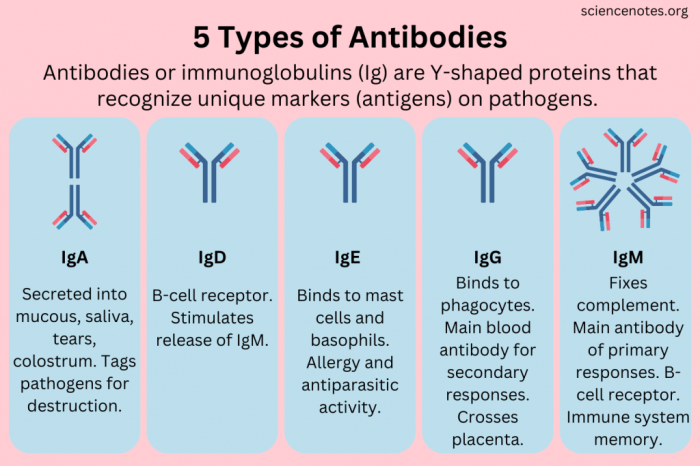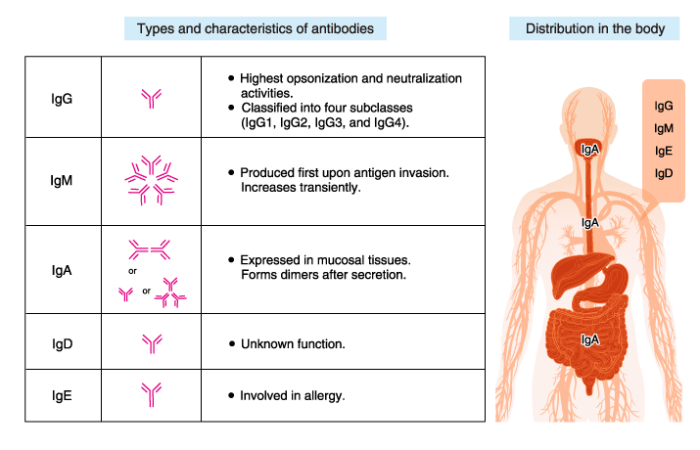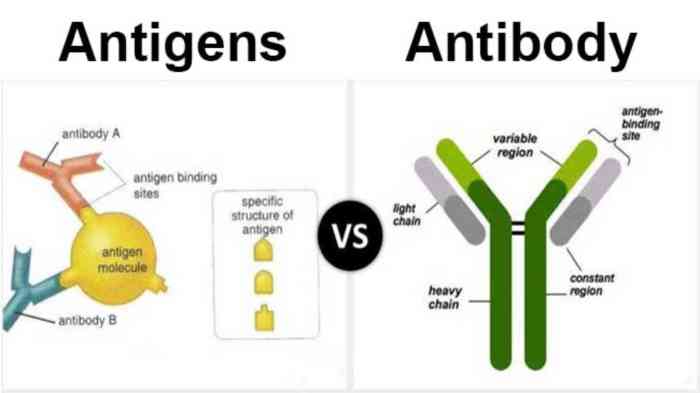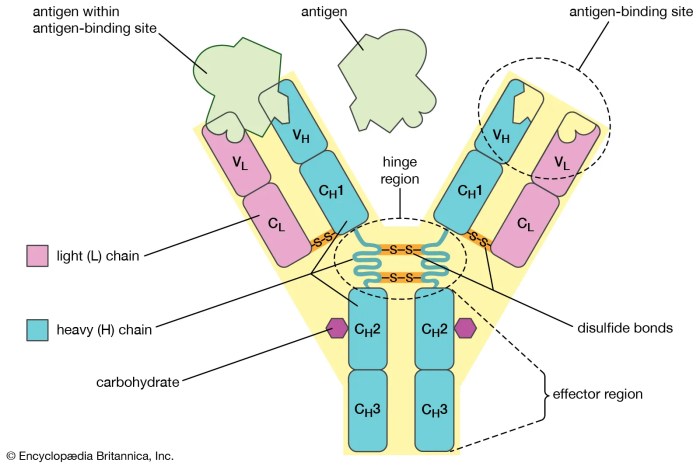Match each of the antibody classes with its description, exploring the intricacies of the immune system and the diverse roles these proteins play in defending against pathogens and maintaining health. Join us as we delve into the fascinating world of antibody classification, unraveling their structures, functions, and clinical applications.
Antibody Classes

Antibody classes, also known as immunoglobulin classes, are a group of closely related proteins produced by the immune system. These proteins are crucial for recognizing and neutralizing pathogens, making them essential components of the body’s defense mechanisms.
There are five main antibody classes: IgG, IgA, IgM, IgD, and IgE. Each class has a unique structure and function, enabling the immune system to mount a tailored response to different types of infections and antigens.
Antibody Class Types
- IgG: The most abundant antibody class, IgG is found in blood and other bodily fluids. It is responsible for providing long-term immunity and is effective in neutralizing toxins and viruses.
- IgA: Found in saliva, tears, and breast milk, IgA protects mucosal surfaces from infection. It is particularly effective against bacteria and viruses that enter the body through these routes.
- IgM: The largest antibody class, IgM is produced early in an immune response and is effective in neutralizing pathogens before they can establish an infection.
- IgD: Found on the surface of B cells, IgD helps activate these cells and initiate an immune response.
- IgE: Responsible for allergic reactions, IgE binds to allergens and triggers the release of histamine and other inflammatory mediators.
| Antibody Class | Structure | Function | Location |
|---|---|---|---|
| IgG | Monomer | Long-term immunity, toxin and virus neutralization | Blood and bodily fluids |
| IgA | Dimer | Mucosal surface protection | Saliva, tears, breast milk |
| IgM | Pentamer | Early immune response, pathogen neutralization | Blood |
| IgD | Monomer | B cell activation | Surface of B cells |
| IgE | Monomer | Allergic reactions | Mast cells and basophils |
Antibody Class Interactions
Antibody classes interact with antigens in various ways:
- Neutralization: Antibodies bind to specific antigens, preventing them from interacting with host cells.
- Opsonization: Antibodies coat antigens, making them more recognizable to phagocytes, which then engulf and destroy them.
- Complement activation: Some antibodies can activate the complement system, a group of proteins that work together to destroy pathogens.
- Antibody-dependent cell-mediated cytotoxicity (ADCC): Antibodies can bind to target cells and recruit cytotoxic cells, such as natural killer cells, to destroy them.
Clinical Applications of Antibody Classes, Match each of the antibody classes with its description
Antibody classes have numerous clinical applications:
- Vaccines: Vaccines stimulate the immune system to produce antibodies against specific pathogens, providing protection against future infections.
- Therapeutic antibodies: Monoclonal antibodies, produced in the laboratory, can be used to treat various diseases, such as cancer and autoimmune disorders.
- Diagnostics: Antibodies are used in laboratory tests to detect the presence of specific antigens, aiding in the diagnosis of infections and other diseases.
Answers to Common Questions: Match Each Of The Antibody Classes With Its Description
What is the primary function of antibodies?
Antibodies are the foot soldiers of the immune system, tasked with recognizing and neutralizing foreign invaders such as bacteria, viruses, and toxins.
How many different antibody classes are there?
There are five main antibody classes in humans: IgG, IgM, IgA, IgD, and IgE, each with unique structural features and functions.
What is the role of antibodies in vaccines?
Vaccines harness the power of antibodies by exposing the immune system to weakened or inactivated pathogens, allowing it to develop memory and mount a rapid response upon future exposure.



